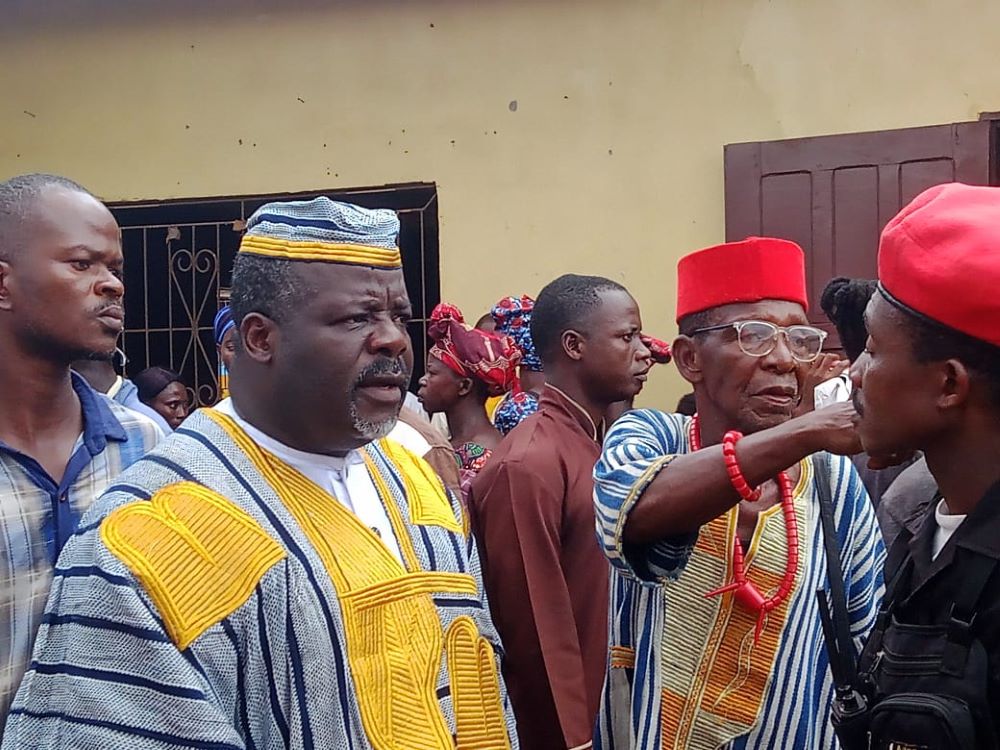Dr. Jeremiah Whapoe, the Political Leader of the Vision for Liberia Transformation Party (VOLT), recently paid tribute to the late Senator Prince Yormie Johnson, who he argues deserves recognition as a national hero instead of facing criticism for his past, particularly for his involvement in the Liberian Civil War. In an interview with The NEW DAWN following his visit to honor the deceased senator’s memory in Paynesville on December 2, 2024, Dr. Whapoe recounted Senator Johnson’s significant contributions to Liberia. He emphasized that, while Johnson held the controversial title of warlord, he acted on behalf of the nation rather than personal gain, marking him as a patriot who deserves celebration and respect.
Reflecting on Senator Johnson’s complex legacy, Dr. Whapoe acknowledged the duality of his character. Despite his notorious past as a warlord, he described Johnson as a man committed to principle and a significant player in Liberia’s history. He argued that Johnson’s decision to cease hostilities and yield power to ECOMOG, the West African peacekeeping force, after recognizing the futility of continued fighting was a show of genuine patriotism. Dr. Whapoe drew attention to these actions, arguing that they were reflective of a man who, despite the darkness of war, sought to prioritize the interests of his country.
The tribute also highlighted Senator Johnson’s developmental orientation and contribution to the nation’s growth. Whapoe stressed that Johnson left an indelible mark on Liberia’s historical landscape, attributing both positive and negative traits to him but ultimately advocating for a balanced view of his legacy. He contended that the senator’s work and principles should be honored regardless of his past as a warlord, promoting the idea that individuals can grow and change. This perspective on Johnson suggests a need for reconciliation in how Liberia remembers its historical figures.
Rufus Saydee, the Assistant Minister for Trade Union Affairs, shared similar sentiments regarding Johnson’s passing, describing it as a significant loss not only for Nimba County, where Johnson served as senator, but for the entire nation of Liberia. He called for unity among the people of Nimba in the face of this loss, encouraging them to look toward a brighter future. Saydee’s comments underscore the potential for healing and rebuilding community bonds in the wake of Johnson’s death, while also recognizing the complexities of his legacy.
Despite the turmoil often associated with Senator Johnson’s name, the discussions surrounding his passing reflect a broader conversation about how Liberia confronts its wars’ historical narratives. The contrasting perceptions of Johnson demonstrate the challenges that are present within a society attempting to remember its past while also seeking a path forward. The acknowledgment of Johnson’s bravery and significant actions during the war could serve as a foundational aspect in the ongoing dialogue about national healing, reconciliation, and unity in Liberia.
As Liberia navigates the dualities of its history and seeks to honor figures like Senator Johnson, the narrative formed by leaders like Dr. Whapoe and Saydee could aid in fostering a more nuanced understanding of patriotism and sacrifice. It encourages society to reflect on the complexities within individuals who have shaped its past, showing that the legacies of such figures can be celebrated even amid their flawed histories. The discussion surrounding Johnson, therefore, becomes not only an opportunity to celebrate a national hero but also a moment for Liberia to consider its collective journey towards healing and unity moving forward.














